Year 6
The English curriculum is built around the three interrelated strands of language, literature and literacy. Teaching and learning programs should balance and integrate all three strands. Together, the strands focus on developing students' knowledge, understanding and skills in listening, reading, viewing, speaking, writing and creating. Learning in English builds on concepts, skills and processes developed in earlier years, and teachers will revisit and strengthen these as needed.
In Years 5 and 6, students communicate with peers and teachers from other classes and schools, community members, and individuals and groups, in a range of face-to-face and online/virtual environments.
Students engage with a variety of texts for enjoyment. They listen to, read, view, interpret and evaluate spoken, written and multimodal texts in which the primary purpose is aesthetic, as well as texts designed to inform and persuade. These include various types of media texts including newspapers, film and digital texts, junior and early adolescent novels, poetry, non-fiction and dramatic performances. Students develop their understanding of how texts, including media texts, are influenced by context, purpose and audience.
The range of literary texts for Foundation to Year 10 comprises Australian literature, including the oral narrative traditions of Aboriginal and Torres Strait Islander Peoples, as well as the contemporary literature of these two cultural groups, and classic and contemporary world literature, including texts from and about Asia.
Literary texts that support and extend students in Years 5 and 6 as independent readers describe complex sequences, a range of non-stereotypical characters and elaborated events including flashbacks and shifts in time. These texts explore themes of interpersonal relationships and ethical dilemmas within real-world and fantasy settings. Informative texts supply technical and content information about a wide range of topics of interest as well as topics being studied in other areas of the curriculum. Text structures include chapters, headings and subheadings, tables of contents, indexes and glossaries. Language features include complex sentences, unfamiliar technical vocabulary, figurative language, and information presented in various types of graphics.
Students create a range of imaginative, informative and persuasive types of texts such as narratives, procedures, performances, reports, reviews, explanations and discussions.
(source: www.australiancurriculum.edu.au)
Achievement Standard
Receptive modes (listening, reading and viewing)
By the end of Year 6, students understand how the use of text structures can achieve particular effects. They analyse and explain how language features, images and vocabulary are used by different authors to represent ideas, characters and events.
Students compare and analyse information in different and complex texts, explaining literal and implied meaning. They select and use evidence from a text to explain their response to it. They listen to discussions, clarifying content and challenging others' ideas.
Productive modes (speaking, writing and creating)
Students understand how language features and language patterns can be used for emphasis. They show how specific details can be used to support a point of view. They explain how their choices of language features and images are used.
Students create detailed texts elaborating on key ideas for a range of purposes and audiences. They make presentations and contribute actively to class and group discussions, using a variety of strategies for effect. They demonstrate an understanding of grammar, and make considered vocabulary choices to enhance cohesion and structure in their writing. They use accurate spelling and punctuation for clarity and make and explain editorial choices based on criteria.
(source: www.australiancurriculum.edu.au)
- Plus Plan
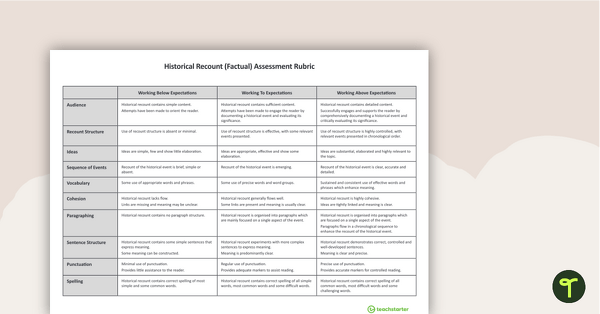
NAPLAN-Style Assessment Rubric - Historical Recounts
A NAPLAN-style rubric designed to help teachers to assess students' historical recounts.
- Plus Plan
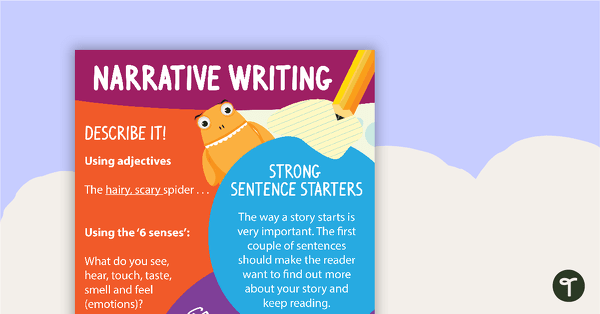
Narrative Writing Poster
A poster to encourage your students to think about narrative writing.
- Plus Plan
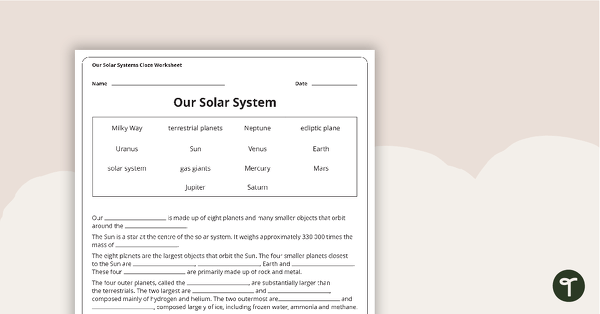
Fiction and Non-Fiction Cloze Activities
A set of 7 fiction and non-fiction cloze worksheets with answer sheets.
- Plus Plan
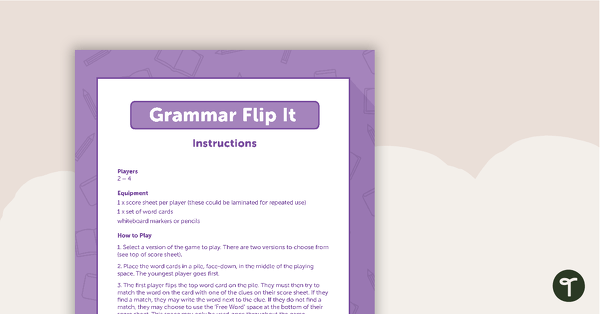
Adverb Grammar Card Game – Flip It!
A fun game for students to play in small groups to consolidate their understanding of adverbs.
- Plus Plan
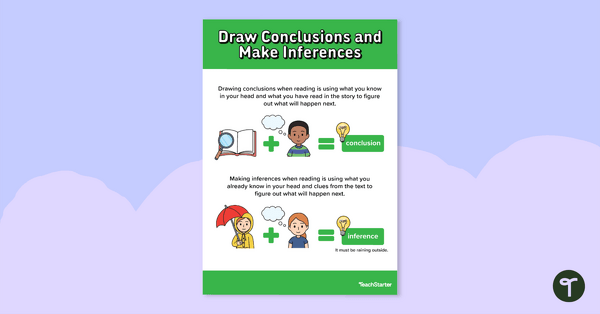
Inferring and Drawing Conclusions Poster
A poster highlighting how to draw conclusions and make inferences when reading a piece of text.
- Plus Plan
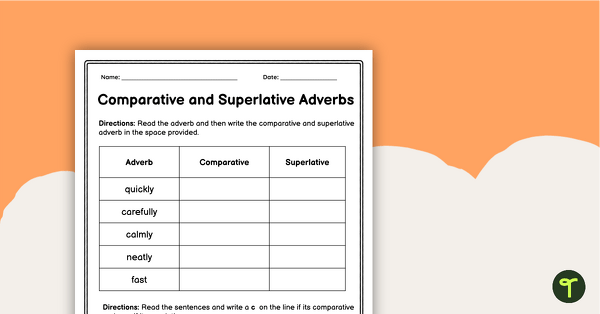
Comparative and Superlative Adverb Worksheet
Use this comparative and superlative adverbs worksheet to check students understanding of this grammar concept in your classroom
- Plus Plan
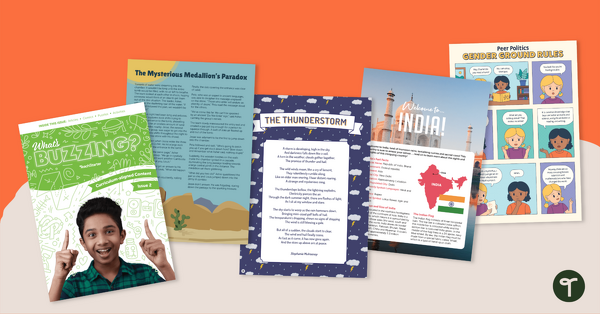
Year 6 Magazine - What's Buzzing? (Issue 2)
Issue 2 of our beautifully designed, 24-page reading magazine specifically designed for Year 6 students.
- Plus Plan
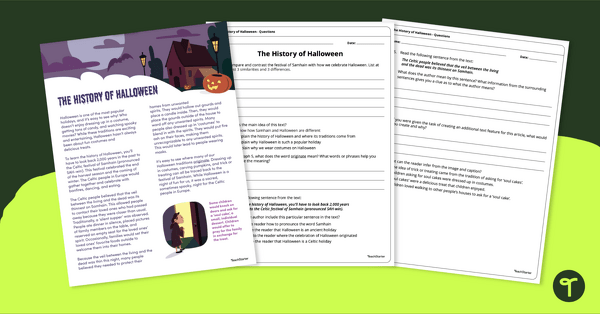
The History of Halloween – Comprehension Worksheet
Learn about the history of Halloween with a printable reading comprehension passage and questions.
- Plus Plan
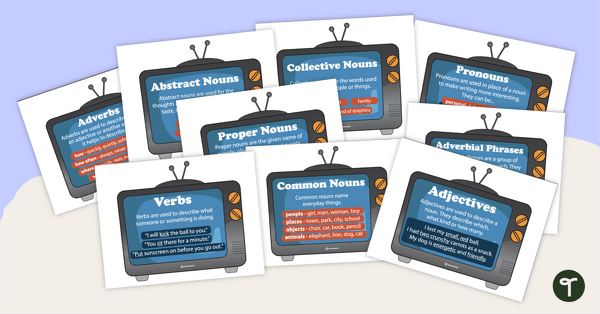
Grammar TVs
Grammar presented on TVs.
- Plus Plan
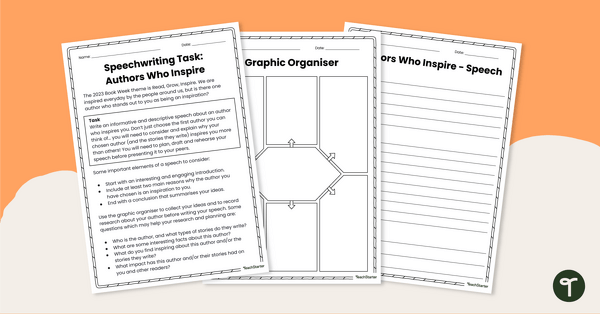
Authors Who Inspire – Speechwriting Task
Research and celebrate an inspiring author with this speechwriting activity.
- Plus Plan
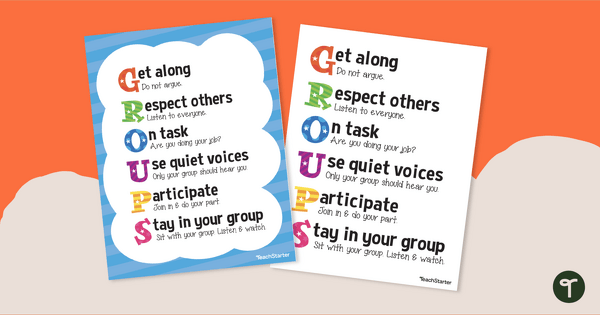
G.R.O.U.P.S - Group Work Expectations Poster
Encourage cooperative behaviour during group work activities with a printable group work mnemonic poster.
- Free Plan
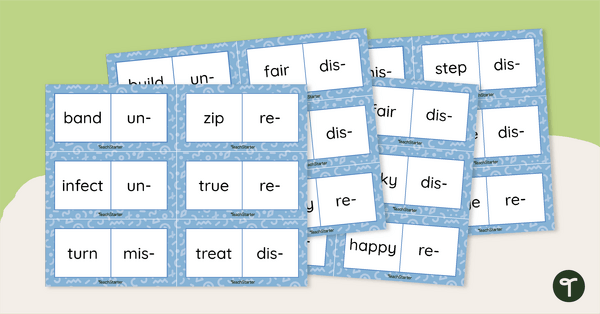
Common Prefixes - Domino Game
Identify new words that include common prefixes with 28 prefixes and root word dominoes.
- Plus Plan
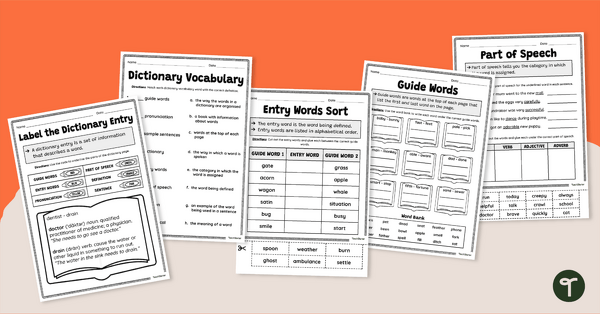
Dictionary Skills Worksheet Pack
Consolidate your students’ knowledge of dictionary skills with this complete worksheet pack!
- Plus Plan
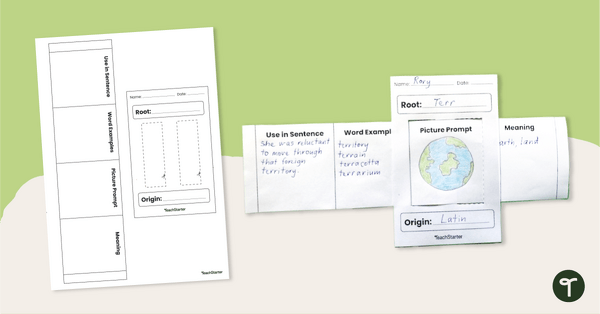
Roots Window Graphic Organiser
Organise ideas about roots and their origins with this graphic organiser.
- Plus Plan
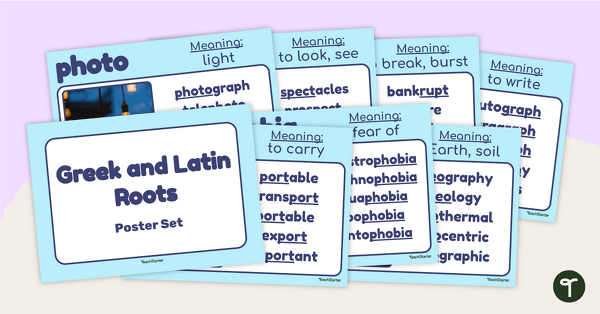
Greek/Latin Roots Posters
Encourage vocabulary development with a set of 23 Greek and Latin roots posters.
- Free Plan
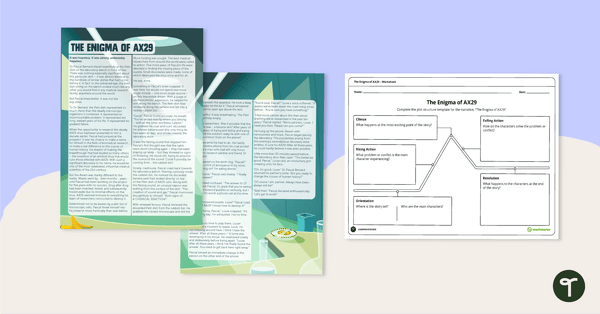
The Enigma of AX29 - Narrative Plot Worksheet
Explore the features of narrative plot structure with this gripping science fiction story.
- Free Plan
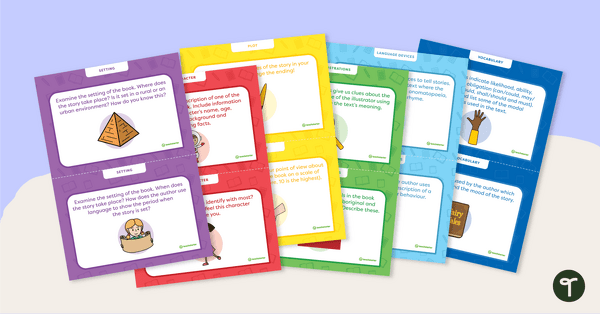
Literature Study Task Cards (Upper Primary)
Explore the wonders of children's literature with this set of 14 literature study task cards for upper primary students.
- Plus Plan
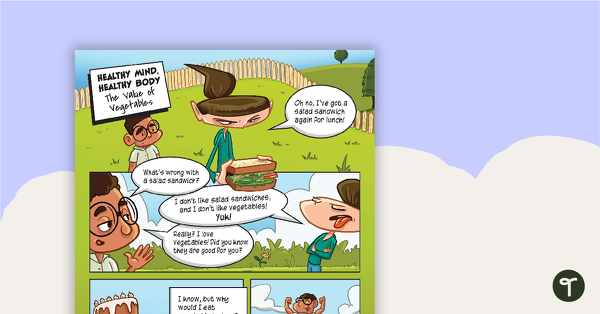
Healthy Mind, Healthy Body: The Value of Vegetables – Worksheet
A comprehension worksheet for a comic from the Year 5 magazine (Issue 2).
- Plus Plan
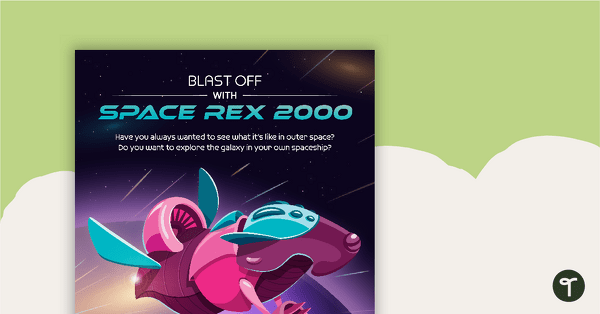
Blast Off with Space Rex 2000 – Worksheet
A comprehension worksheet for a fake advertisement from the Year 5 magazine (Issue 2).
- Plus Plan
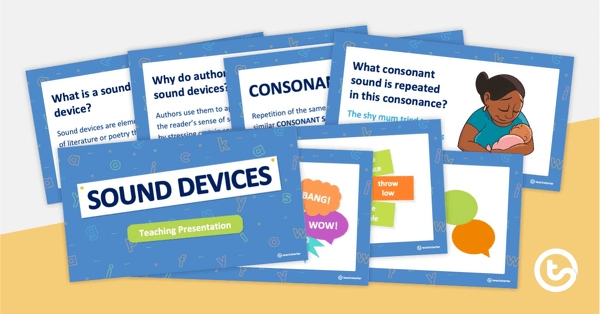
Sound Devices PowerPoint
An editable PowerPoint to use when teaching sound devices to your students.
- Plus Plan
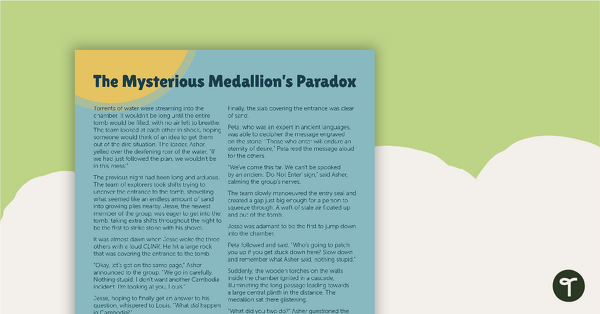
The Mysterious Medallion's Paradox - Worksheet
A comprehension worksheet for a narrative from the Year 6 magazine (Issue 2).
- Plus Plan
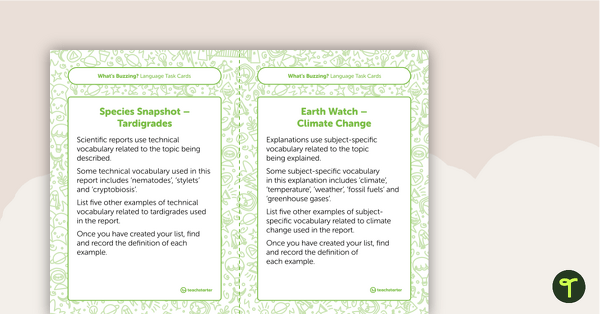
Year 6 Magazine - "What's Buzzing?" (Issue 1) Task Cards
A set of five literacy rotation task cards to be used in conjunction with Issue 1 of Teach Starter's Year 6 magazine.
- Plus Plan
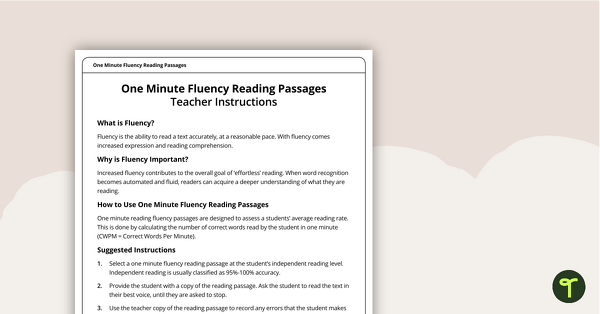
Fluency Reading Passage - The Thunderstorm (Year 6)
A fiction text to use when assessing students' fluency.
- Plus Plan
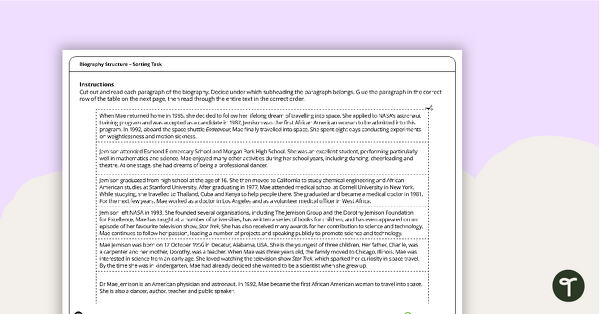
Dr Mae Jemison – Biography Structure Sorting Task
A sorting task to help students learn about the structure of a biography.
- Plus Plan
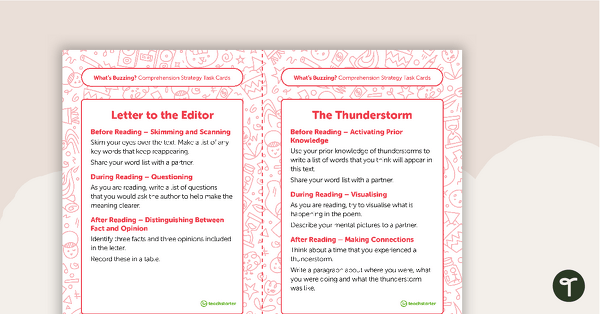
Year 6 Magazine – “What’s Buzzing?” (Issue 2) Task Cards
A set of five literacy rotation task cards to be used in conjunction with Issue 2 of Teach Starter’s Year 6 magazine.
- Plus Plan
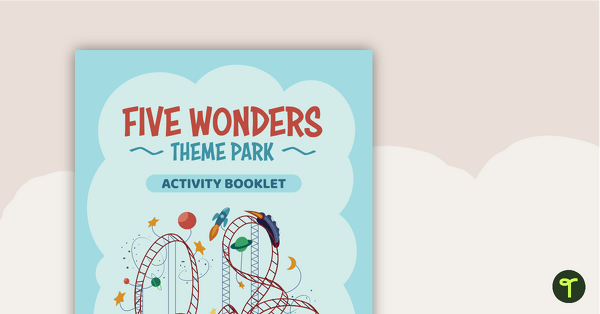
Five Wonders Theme Park: Fresh Start – Project
A project for students to use their literacy skills and creativity to rebrand Five Wonders Theme Park.
- Plus Plan
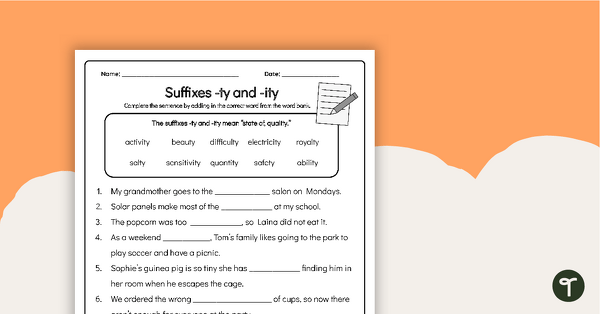
-Ty and -Ity Suffixes Worksheet
Practise using the suffixes -ty and -ity with a printable suffix worksheet.
- Plus Plan
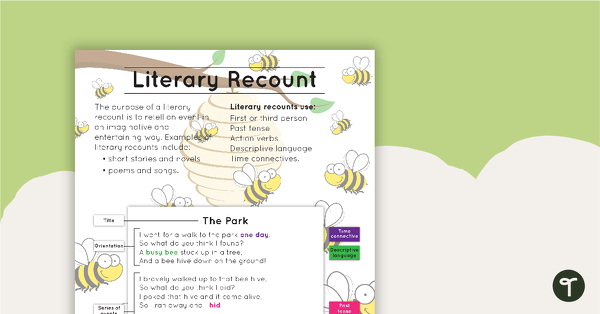
Literary Recount Text Type Poster With Annotations
A poster about literary recounts, including an annotated example.
- Plus Plan
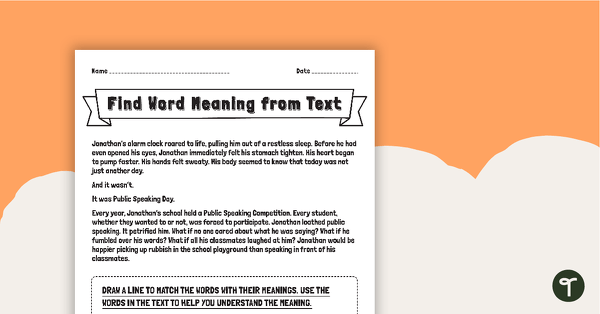
Finding Word Meaning In Context - Text And Word Meaning Worksheet
A teaching resource to help teach your students how to find word meaning in context.
- Plus Plan
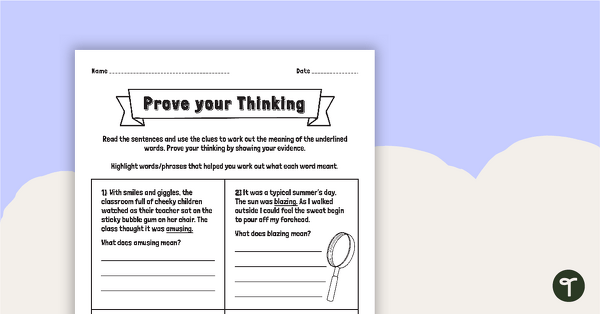
Finding Word Meaning In Context - Prove Your Thinking Worksheet
A teaching resource to help teach your students how to find word meaning in context.
- Plus Plan
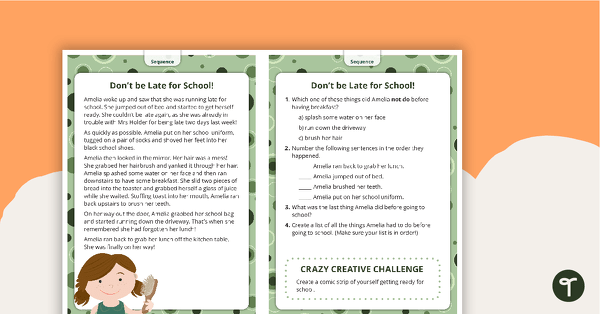
Comprehension Task Cards - Understand Sequence
A set of comprehension task cards to help students understand sequence when reading.
- Plus Plan
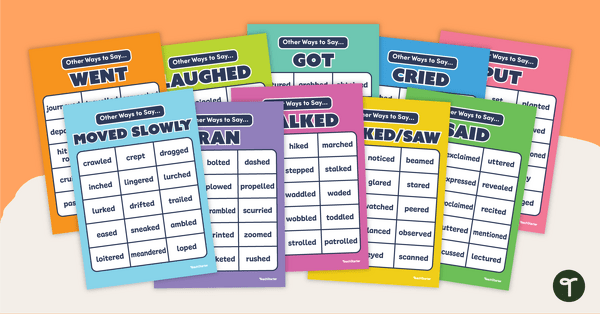
Vivid Verbs Poster Pack
Teach your students to omit boring, overused verbs from their writing with a classroom set of vivid verb posters.